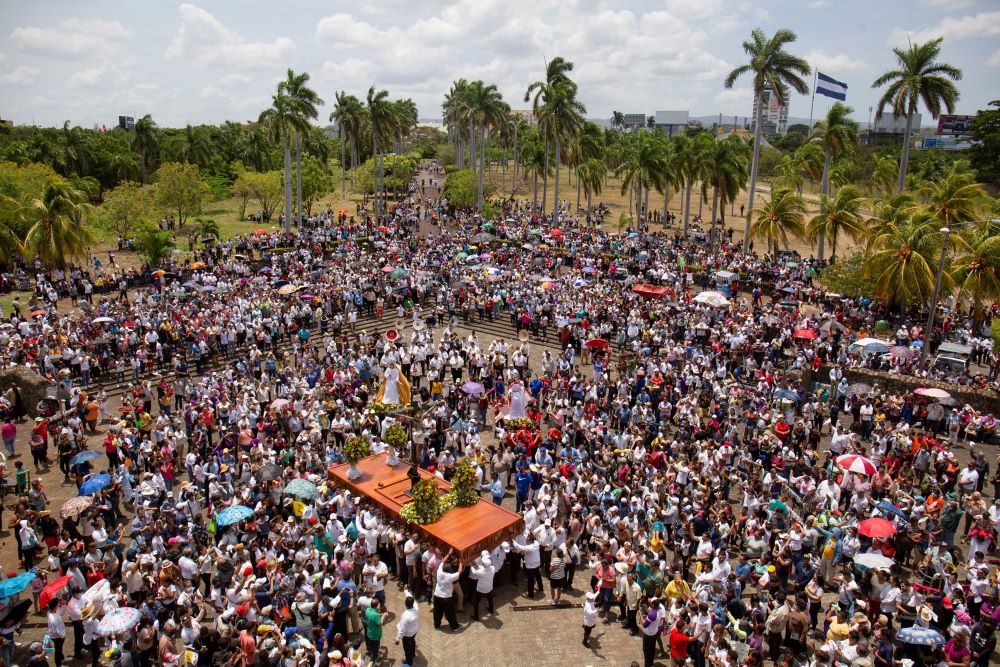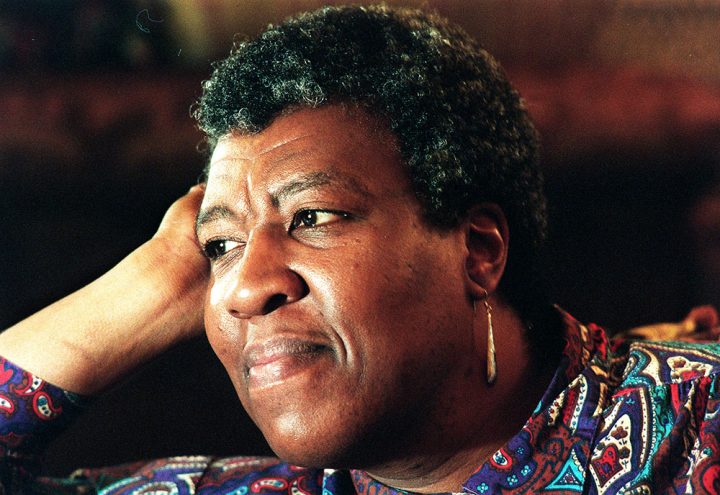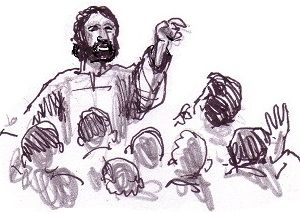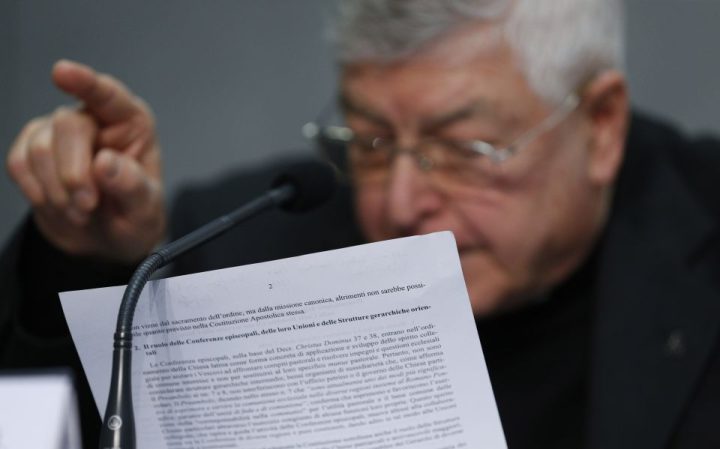
A U.S. government commission on religious freedom highlighted the worsening conditions for the Catholic Church in Nicaragua in their annual report, released May 1.
« The regime in Nicaragua has sharply increased its persecution of the Catholic Church by imprisoning clergy, shuttering church-affiliated organizations, and prohibiting Catholic rituals, » the U.S. Commission on International Religious Freedom, or USCIRF, report said.
In February, the Nicaraguan government deported a group of 222 political prisoners, including Catholic priests, seminarians, diocesan employees and a deacon, to the U.S. and stripped them of their citizenship. One day after the deportation, Bishop Rolando Álvarez of Matagalpa was convicted of treason, sentenced to 26 years in prison and stripped of his citizenship.
The Nicaraguan government has also expelled multiple groups of women religious, prohibited Catholic processions and shuttered Catholic media.
The USCIRF applauded the U.S. State Department’s November decision to designate Nicaragua for the first time as a « country of particular concern, » or CPC, a designation meaning that « the government engages in or tolerates ‘particularly severe’ violations of religious freedom. » That designation allows the U.S. secretary of state to consider a range of policy options, including imposing sanctions.
The commission also praised the first-time designation of Cuba as a CPC. « Throughout the year, the Cuban government tightly controlled religious activity through surveillance, harassment of religious leaders and laypeople, forced exile, fines, and ill treatment of religious prisoners of conscience, » the report said.
The report drew attention to the nonrenewal of the residence permit of Jesuit Fr. David Pantaleon, leader of Cuba’s Jesuit province and president of the Conference of Religious Men and Women in Cuba, who had to leave the country. Pantaleon « reported that the [Cuban Office of Religious Affairs] cited his support for political prisoners and the Jesuits’ critical position toward the regime as the main reasons for his expulsion. »
The commission expressed « tremendous disappointment » that the State Department had not accepted its 2022 recommendations to designate India and Nigeria as CPCs.
On India, the report wrote, « Throughout the year, the Indian government at the national, state, and local levels promoted and enforced religiously discriminatory policies, including laws targeting religious conversion, interfaith relationships, the wearing of hijabs, and cow slaughter, which negatively impact Muslims, Christians, Sikhs, Dalits, and Adivasis (indigenous peoples and scheduled tribes). »
The report highlighted the criminalization of interfaith marriages and the Karnataka state government’s hijab ban in public schools. It also called attention to the destruction of property that Muslims and Christians experienced.
« Hindu nationalists bulldozed a Catholic center near Mangalore in February and attacked, looted, and destroyed the homes of hundreds of Christians in December for their refusal to convert to Hinduism. In addition, at least four madrasas (Islamic seminaries) were demolished following a statement in May from the Chief Minister of Assam that madrasas should be eliminated, » it said.
In Nigeria, blasphemy laws and violence negatively impact religious freedom, the report wrote. It cited a death sentence for a leader accused of blasphemy, as well as the mob killing of a student accused of blasphemy and the arrests of people accused of organizing a same-sex wedding and of blasphemous comments.
The report also mentioned the massacre of 40 people in a Catholic Church in the state of Ondo on Pentecost Sunday June 5.
The commission also recommended the redesignation of Burma (Myanmar), China, Eritrea, Iran, North Korea, Pakistan, Russia, Saudi Arabia, Tajikistan and Turkmenistan as CPCs. It also recommended that Afghanistan, Syria and Vietnam be added as CPCs for 2023.
The report examined the state of religious freedom in each of these countries.
In China, the report wrote, « authorities detained or otherwise forcibly disappeared Catholic priests and bishops—including Bishop Joseph Zhang Weizhu and Bishop Augustine Cui Tai—who refused to join the state-controlled Chinese Catholic Patriotic Association. »
It also highlighted the government’s installation of a bishop without Vatican approval and the arrest of Hong Kong Cardinal Joseph Zen.
In Burma, the report warned that the State Administrative Council « is using the same tactics » against religious minorities « that its forces have deployed against Muslim-majority Rohingyas since 2017. »
« From the time of the 2021 coup through December 2022, government forces damaged or destroyed at least nine Catholic churches in Kloikaw Diocese in Kayah State and severely affected at least 16 out of 38 Catholic parishes. Government forces have also burned villages of religious minorities and even members of the Buddhist majority, destroying homes and houses of worship and schools in the process, » the report wrote.
Advertisement
Although most of the report’s discussion of Catholics focused on instances where Catholics experienced persecution, the report did highlight one case where religious freedom was restricted due to Catholicism.
« Authorities of San Juan Mazatlán in Mexico detained 15 indigenous individuals from six different families from an evangelical Christian community for not contributing to local Catholic festivities, » the report said, highlighting concerns about the religious freedom of Indigenous people in Latin America.
In their policy recommendations, the commissioners urged the Biden administration to increase its ability to accept the maximum number of refugees as allowed by law and to treat asylum seekers better, « including by enhancing the quality and oversight of the initial processing of noncitizens, improving detention conditions, and appointing a high-level official at the U.S. Department of Homeland Security (DHS) to coordinate and oversee reforms. »
The USCIRF is made up of nine unpaid commissioners who are appointed by the president and congressional leaders to make policy recommendations to the president, secretary of state and Congress. The U.S. ambassador-at-large for international religious freedom, a state department official, is a non-voting member.
The current commission includes three people appointed by President Joseph Biden, two appointed by House Speaker Kevin McCarthy, two appointed by Senate Majority Leader Charles Schumer, and one each appointed by former House Speaker Nancy Pelosi and Senate Minority Leader Mitch McConnell.
One Biden appointee, Stephen Schneck, is a former professor at the Catholic University of America who serves on the governing boards of the Catholic Climate Covenant and the Catholic Mobilizing Network.



